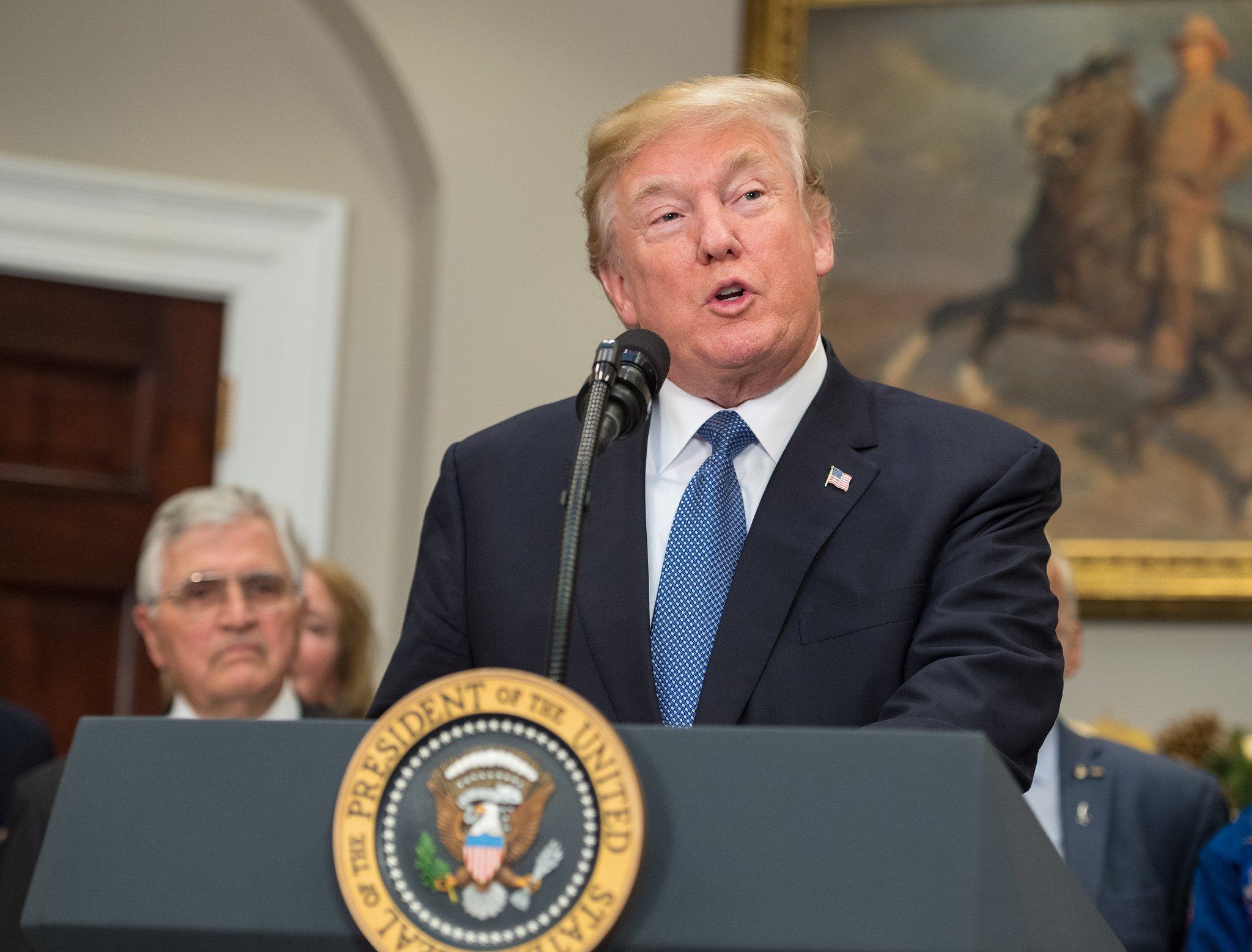American News
Transcript: Trump dossier focused on “opaque” business deals

Simpson did not say yes or no, but said Trump’s conduct raised questions. (File photo: NASA/Aubrey Gemignani via NASA HQ PHOTO/Flickr, CC BY-NC-ND 2.0)
WASHINGTON— Donald Trump’s “opaque” business deals in the former Soviet Union, history of tax disputes and real estate projects abroad were critical areas of research that led to the dossier alleging a compromised relationship between the president and the Kremlin, according to the transcript of a congressional interview released Thursday.
Glenn Simpson told the House Intelligence Committee in a private interview in November that after his firm, Fusion GPS, was hired to look into Trump, it enlisted a former British spy “to figure out what Trump’s been up to” in Russia “because he’s gone over a bunch of times” and “said some weird things about (Russian President Vladimir) Putin.”
The committee released a transcript of the hours-long interview on Thursday, following the lead of a separate Senate panel that made public its own session with Simpson. The two documents give new details about the origins of the dossier, which for the last year has been a source of political fascination because of sensational allegations of a Russian effort to aid Trump.
“We also increasingly saw that Mr. Trump’s business career had evolved over the prior decade into a lot of projects in overseas places, particularly in the former Soviet Union, that were very opaque, and that he had made a number of trips to Russia, but said he’d never done a business deal there,” Simpson said in explaining areas of interest that gave rise to the dossier. “And I found that mysterious.”
Simpson’s firm was hired first by a conservative website with strong ties to the Republican establishment to scour Trump’s background for negative information. A law firm representing the Democratic National Committee continued funding Fusion’s work after the original GOP source, the Washington Free Beacon, lost interest.
The dossier essentially a collection of memos compiled as opposition research was provided to the FBI in 2016 and agents have worked to corroborate its findings. FBI agents met on several occasions in 2016 with the former British spy, Christopher Steele, who compiled the findings, and Steele was also interviewed by special counsel Robert Mueller’s team of investigators. Former FBI Director James Comey briefed Trump, weeks before his January 2017 inauguration, on a summary of the research.
Simpson has spent hours before congressional committees, defending the dossier as sound research and saying he wasn’t aware of anything in the document that was fabricated.
At various points during his Intelligence Committee interview, Simpson advised the committee on how to direct its investigation and outlined what he said were connections between the Trump orbit and Russia. He did not provide evidence to back up his allegations, but suggested that investigators use their subpoena power to look into specific real estate deals with specific people.
He also said Trump’s patterns of behaviour raise alarms.
“One of the central mysteries of Donald Trump is that, you know, beginning in the mid-2000s he was not a creditworthy businessman. And so he you know, if you’re analyzing, you know, someone who says they’re a billionaire but can’t get a bank loan, you know, there’s this whole issue of where is the credit coming from.”
At one point during the committee interview, Simpson was asked the question at the heart of the congressional investigations and that of Mueller’s team whether the Trump campaign had co-ordinated with Russia to influence the outcome of the 2016 presidential election.
Simpson did not say yes or no, but said Trump’s conduct raised questions.
“I think that the evidence that has developed over the last year, since President Trump took office, is that there is a well-established pattern of surreptitious contacts that occurred last year that supports the broad allegation of some sort of an undisclosed political or financial relationship between the Trump Organization and people in Russia,” Simpson said.





















